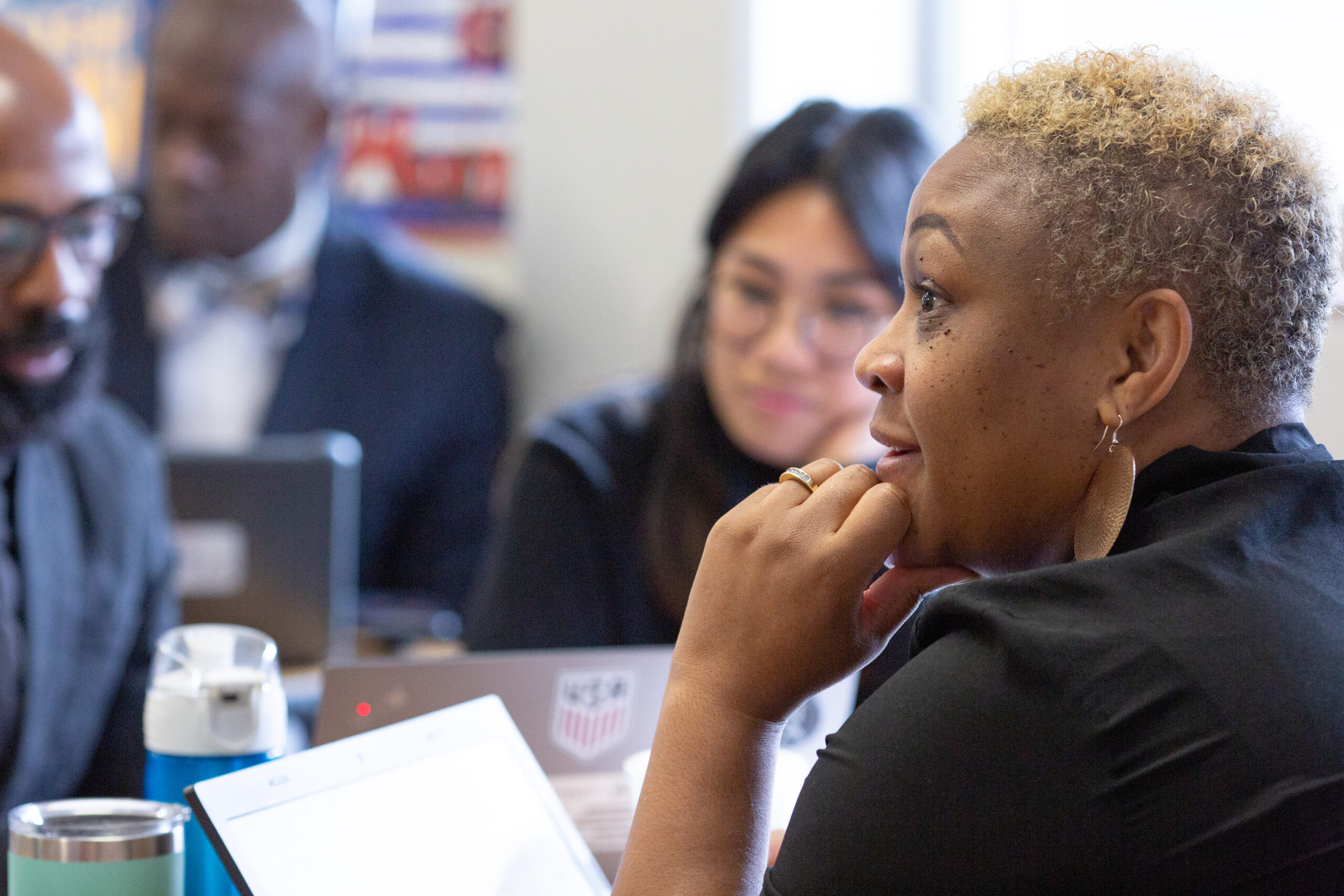Evidence in Action: Bridges Homeward

Q&A with Noreen Dolan
Project Evident’s Equitable Outcomes Wallet provides early-journey nonprofit organizations, especially those led by women or people of color, with free resources and technical assistance to help them deliver strong, equitable outcomes for their communities. As part of this work, Project Evident connected Bridges Homeward with a technical assistance provider who could help better operationalize its impact. Bridges Homeward’s mission is to advocate for children, teens, and families to help the people they serve develop healthy, permanent relationships and make sure they are living in stable, safe, and loving homes. Before working with Project Evident, Bridges Homeward had spent years working on diversity, equity, and inclusion (DEI) initiatives to better serve its staff, but needed assistance to better examine its data in order to achieve its intended outcomes around staff retention and engagement. These outcomes in turn help the organization better serve its clients, as engaged staff who stay in the position longer are able to build better client relationships and support.
Noreen Dolan
Bridges Homeward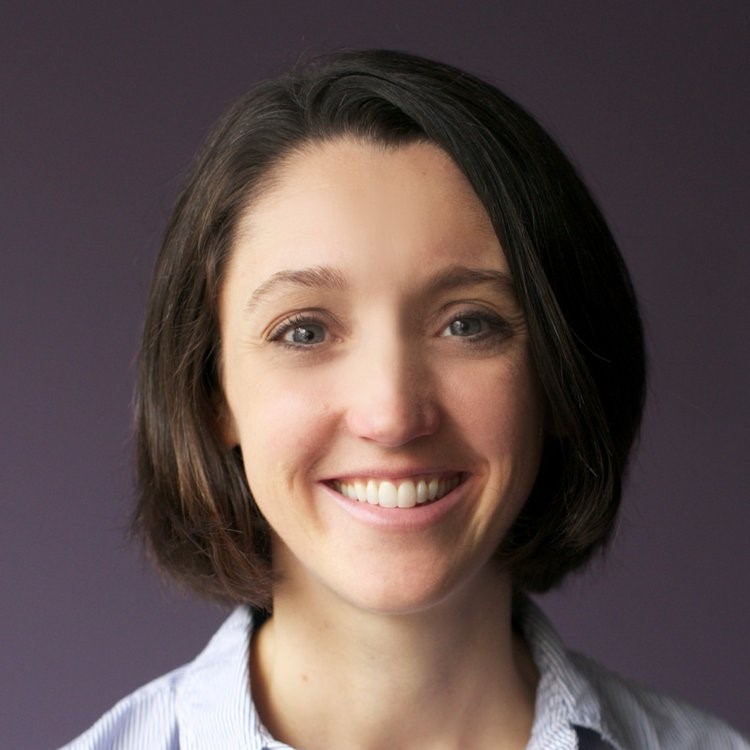
Kaylan Moore
Project Evident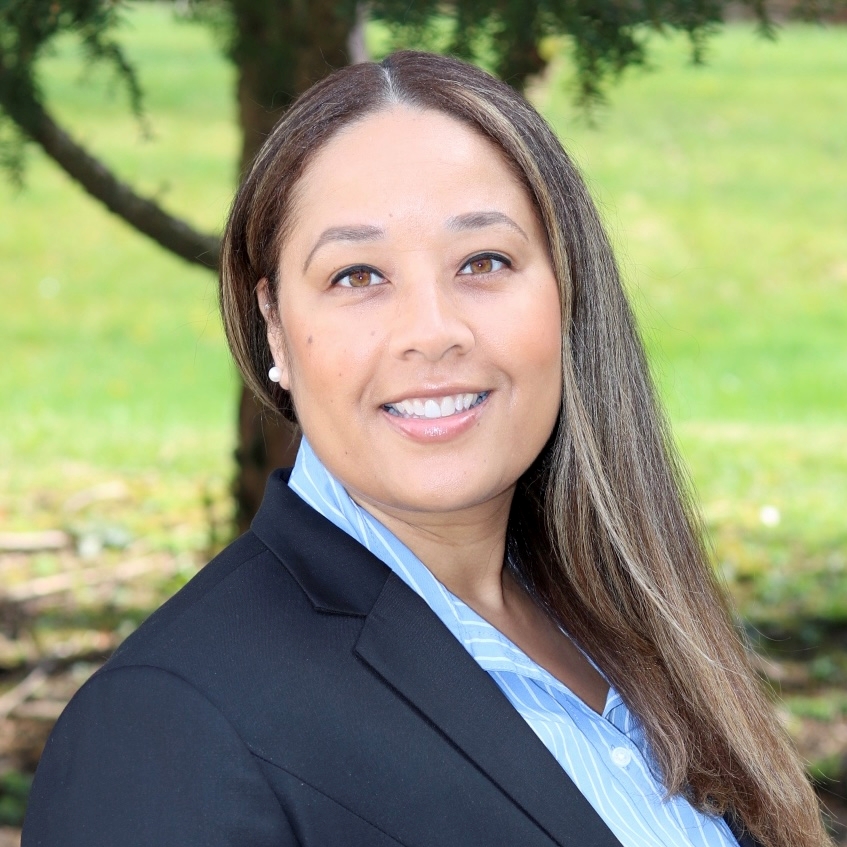
Kaylan Moore: Can you tell us more about your organization? Who do you serve? Where do you work and what types of outcomes are you focused on?
Noreen Dolan: Bridges Homeward is an organization based in Cambridge Massachusetts, right outside of Boston. We partner with amazing foster parents in the Greater Boston area to provide intensive foster care for children and teens in Massachusetts. We oversee a variety of different programs. Our Family Support and Stabilization program helps families stay together and avoid the foster care system, our Independent Living Program supports young adults in foster care, and our Development Disabilities Program provides many services working with the Massachusetts Department of Developmental Services to support those with developmental disabilities. Our primary outcomes are focused on permanency, which means having people in your life who will be there for you no matter what. If you have a safe, secure parenting relationship with adults you can trust, you have a much greater chance of success. Parents themselves need adult figures to rely on as well as support networks, and kids in the foster care system need safe, secure parents to get out of the system and to move forward and achieve their goals.

Kaylan Moore: Why did your organization choose to engage with the Equitable Outcomes Wallet?
Noreen Dolan: We’ve done a lot of work to support staff over the last couple of years. Many nonprofits are currently experiencing issues with turnover, maybe related to lower social service salaries or the intensity of the work, especially since the COVID-19 pandemic. So we really wanted to focus on building up our staff retention.
We’ve always had a strong focus on data, and we really wanted to strengthen our diversity, equity, and inclusion work to better support our staff, so that in turn, we would have better outcomes for our clients. Our timing with the Equitable Outcomes Wallet was perfect. We had spent a lot of time strengthening our internal DEI practices and felt like we made a lot of progress, but didn’t really have the data to build a foundation on. How do current staff identify themselves? What do staff think we do well? Where do we want to get to? How do we make those changes? With the help of the Wallet, we were able to make improvements, get the data we needed, and we’ve seen greater retention and cohesion from staff, which is absolutely better for our clients as well.

“Our timing with the Equitable Outcomes Wallet was perfect. We had spent a lot of time strengthening our internal DEI practices and we felt like we made a lot of progress, but didn’t really have the data to build a foundation on. With the help of the Wallet, we were able to make improvements, get the data we needed, and we’ve seen greater retention and cohesion from staff, which is absolutely better for our clients as well.”
Kaylan: How do you see the role of evidence in supporting your organization’s strategy and mission?
Noreen Dolan: Our DEI strategy in particular was that we wanted to ensure that our staff reflects the diversity of our clients, and in turn that management reflects the diversity of our staff. We believe that it is important to have a diversity of perspectives so that we can create the best programs and outcomes for clients. Using data, we were able to see how staff self-identify. They were able to share some of the diversity of experiences that they bring (e.g. life experiences) to the table. We were able to get data for recruiting, retaining, and supporting staff development that helps us to align our organization’s goals with our human resource efforts. We’ve started to build benchmarks with data so we can create concrete steps to move us in the direction we want to go.
I know at our agency for the first couple of years, people really thought “oh, they’re just talking about DEI, but they’re not really going to do anything about it.” So leadership asked “how do we really live into what we’re working on around diversity?” We determined that we needed to “bake” that commitment into the bones of the agency so that it will persist long after us.
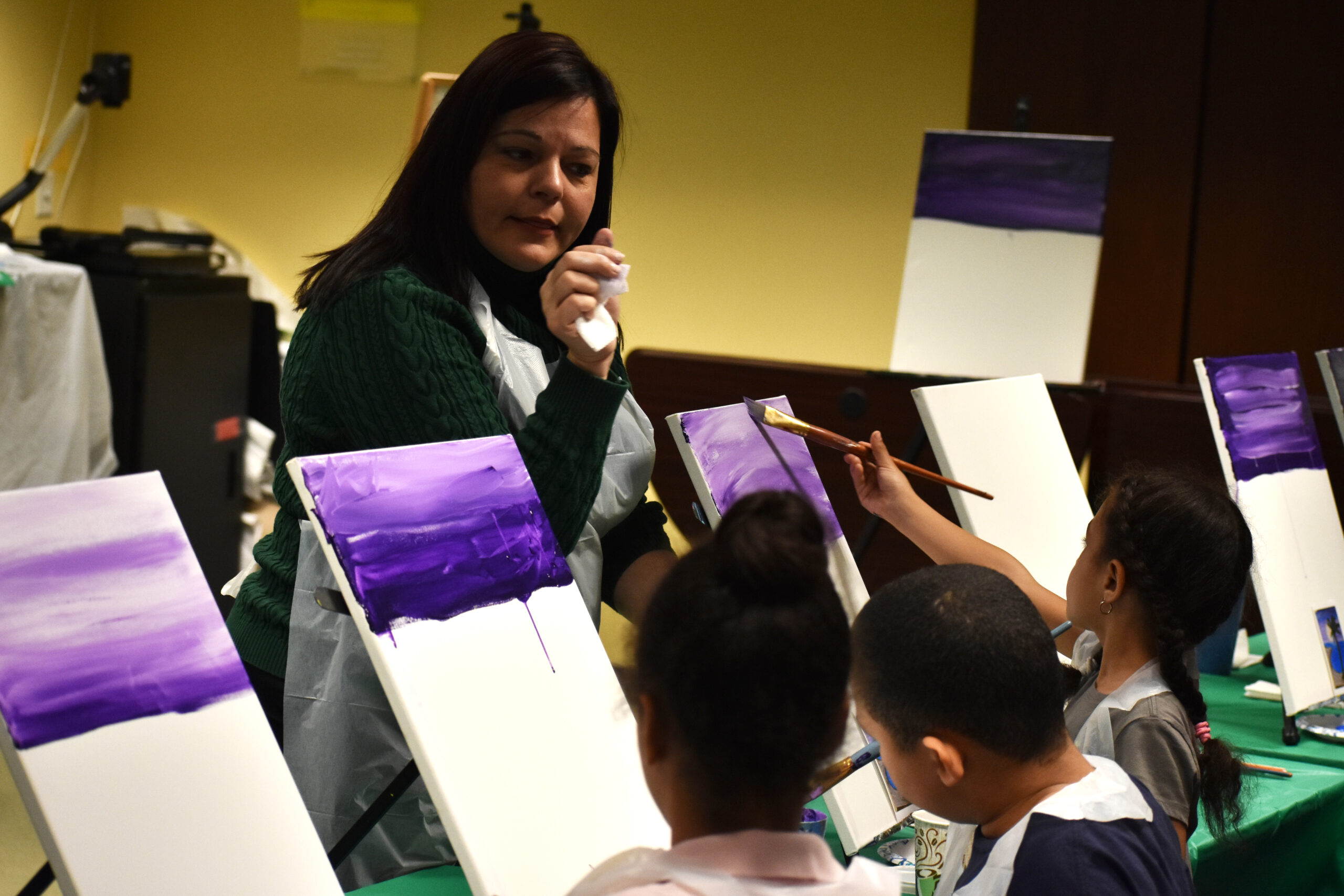
“I know at our agency for the first couple of years, people really thought “oh, they’re just talking about DEI, but they’re not really going to do anything about it.” So leadership asked “how do we really live into what we’re working on around diversity?” We determined that we needed to “bake” that commitment into the bones of the agency so that it will persist long after us.”
Kaylan Moore: How would you describe the outcomes stemming from your participation in the Equitable Recovery Wallet?
Noreen Dolan: We were able to gather data and increase our knowledge of what the agency currently looks like and what perspectives were missing at the table. In terms of evidence building, we ensured that we included our database coordinator, communications staff, and frontline workers in the process so that we had representation at all levels. We all came together and worked with the Wallet as a mini data team to get a broader perspective and to determine what kinds of questions we wanted to ask staff and how we wanted to quantify that.
Once we did that, we gathered our board of directors and our senior leadership team to say: How are we going to actively use this data to recruit more people with lived experience or more people of color at the board level? How are we going to use the data at the managerial level? We have found that our board is very strong, but doesn’t have all the voices at the table that we’d like to see so that it mirrors our management, staff, and clients.
Kaylan Moore: What advice do you have for other organizations that are just getting started with evidence building and use?
Noreen Dolan: It’s so important to be able to clearly articulate what is missing in your organization. Working with the Wallet, we were able to say: This is where we are now but how can we move to that next level? It doesn’t have to be some lofty goal that is overwhelming. For us, this work didn’t feel like an extra lift. It was a breath of fresh air where we could meet virtually at our own pace with the Wallet consultant, who would be with us throughout our journey and offer up actionable suggestions on how we could phrase something differently or assess something differently with our staff.
The Wallet engagement provided us with an extra set of eyes and an outside perspective, which I think is really important. A lot of agencies—and even private agencies—can be very insular and start to groupthink. If you have somebody to give an outside perspective of what other agencies do, it’s very helpful. My biggest suggestion would be to be open-minded. This process can be really helpful if you’re like a sponge and soak in any ideas that people have because I really do think it can make you stronger.
“The Wallet engagement provided us with an extra set of eyes and an outside perspective, which I think is really important. A lot of agencies—and even private agencies—can be very insular and start to groupthink. If you have somebody to give an outside perspective of what other agencies do, it’s very helpful.”
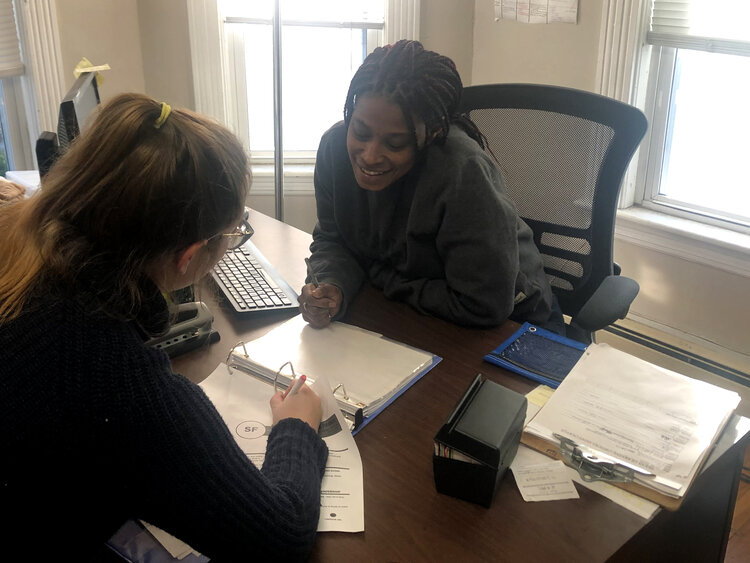
Kaylan Moore: Do you have any final things you’d like to add?
Noreen Dolan: Our Wallet consultant Jason Spector was fantastic. He would say this brilliant thing and we’d realize, oh, we never thought of it that way. He was really helpful to the whole project and the staff. It’s hard to get people excited about data, but this weirdly got people excited about data. As you know, nonprofits rarely get any funding for anything related to data, which is in part why the Wallet was created, because we’re all struggling and all the grants are requiring us to send data and it’s really hard sometimes to come up with the numbers.
Projects like this are invaluable because of the support for the data. They allow us to better fundraise and fulfill our mission. As part of this project, we found that 50% of our staff have lived experiences, and we’re already thinking about how to include that in our next grant application to show funders we are good at this work because our staff has direct experience in it.
“Nonprofits rarely get any funding for anything related to data, which is in part why the Wallet was created, because we’re all struggling and all the grants are requiring us to send data and it’s really hard sometimes to come up with the numbers. Projects like this are invaluable because of the support for the data. They allow us to better fundraise and fulfill our mission.”
Join Us
Equitable Outcomes WalletWith critical philanthropic support from the Barr Foundation, MacKenzie Scott, and Bank of America, the Equitable Outcomes Wallet supports under-resourced organizations in using data and evidence to drive stronger and more equitable outcomes. If you're a practitioner looking for no-cost resources, a funder interested in supporting this work, or a technical assistance provider interested in joining our network of partners, click here to learn more and join us.
Learn More